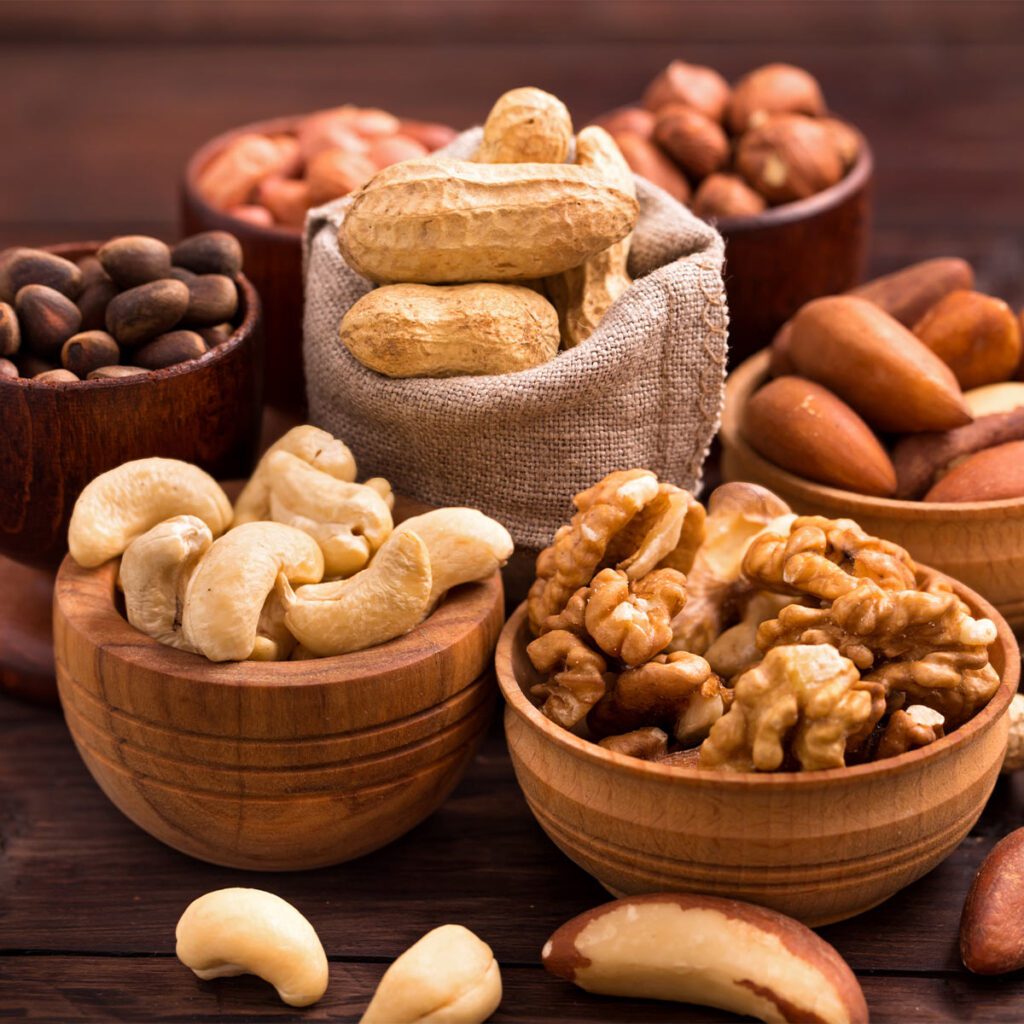It looks like nuts have finally won their decades-long battle for nutrition respect. When eaten in moderation, nuts are being recognized as an important part of a filling and flavorful diet. Today, there is no doubt that plant fats play an important role in a healthy diet.
Natural sources of monounsaturated and polyunsaturated fats such as peanuts, tree nuts, avocados and their plant-based oils – when eaten in balance with other food choices – can add flavor, texture and nutrition to meals.
Nuts in general are very nutritious, providing fiber, protein, essential vitamins such as vitamins A and E, essential minerals such as phosphorous and potassium, folic acid and antioxidant phytochemicals.
Eating nuts appears to be good for your heart, as well, helping to reduce the risk of heart disease. Nuts may also play an important role in altering cholesterol levels in the blood – lowering LDL (low-density lipoprotein or “bad” cholesterol) levels and raising HDL (high-density lipoprotein or “good” cholesterol) levels.
To find a food that is delicious, nutritious and filling is a dieter’s dream come true. Dieters who eat nuts tend to stick to their diets because the fat and fiber content of nuts makes them very filling. As a result, they are not as hungry and, ultimately, eat fewer calories overall.
The only drawback to munching on nuts is the high caloric content. Most nuts are consumed by the handful, which can be dangerous.

This type of eating is often called “eating amnesia,” eating without much thought. Avoid mindless eating by portioning your nuts in small bags or tins for a great snack to take on the go. Also, choose nuts in the shell and you’ll probably eat fewer since it takes time to crack them.
The ultimate health goal is to replace unhealthy choices like cakes, cookies or chips with delicious and nutritious nuts. Here are some ways to add nuts to your diet:
- Sprinkle nuts on hot or cold cereal or yogurt.
- Add toasted nuts to salads or sprinkle on pasta.
- Make a spread by mixing crushed nuts with light cream cheese.
- Mix crushed nuts with flour and coat in fish or chicken recipes.
Nutrition in a Nutshell
Studies have found that nuts can lower low-density lipoprotein (LDL) or “bad” cholesterol levels in the blood. High LDL is one of the primary causes of heart disease, so the ability of nuts to lower LDL cholesterol appears beneficial in a heart-healthy diet.
Some of the nutritional benefits of nuts include:
- Unsaturated fats: The monounsaturated and polyunsaturated fats in nuts help lower bad cholesterol levels.
- Omega-3 fatty acids: Nuts are one of the best plant-based sources of omega-3 fatty acids, which seem to help keep the heart healthy.
- L-arginine: l-arginine may help improve the health of artery walls.
- Fiber: All nuts contain fiber, which helps lower cholesterol and is thought to play a role in preventing diabetes.
- Vitamin E: It is thought that vitamin E may help stop the build-up of plaque in arteries.
- Plant sterols: Some nuts contain plant sterols, which can help lower cholesterol.

